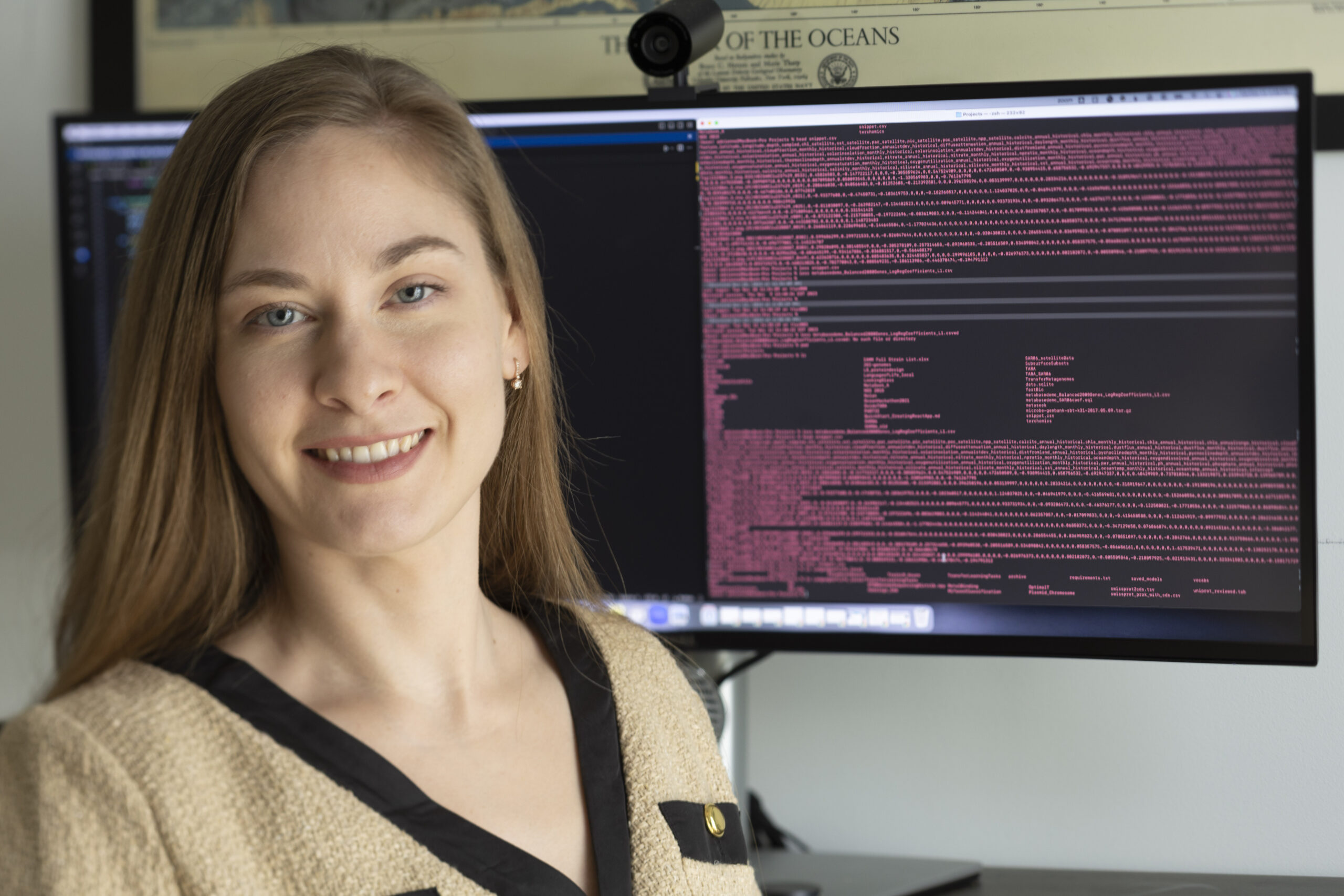There’s a lot we don’t understand about the tiny living organisms in our oceans. Those gaps in knowledge are what Adrienne Hoarfrost calls microbial dark matter.
“It’s a very dramatic way to describe it,” says Hoarfrost, an assistant professor in the Department of Marine Sciences in the Franklin College of Arts and Sciences. “But there’s a huge majority of the microbial world where we don’t know what they are or what they’re doing.”
In fact, about 70% of the microbes pulled from the ocean are a mystery, as scientists seek to understand their functions. And when a milliliter of seawater contains about a million microbes, there is a lot to learn from this “dark matter.”
Enter AI.
Hoarfrost and her lab recognize the need to understand the missing links of the microbial world. They take bits of DNA from the environment, apply AI algorithms, and predict the roles of microbes.
Biology is a next frontier for AI.” — Adrienne Hoarfrost, Assistant Professor in Marine Biology
Demystifying these microbes provides insight into the global carbon cycle—how carbon moves between the atmosphere, soil, water, and living things—by identifying how biology interacts with carbon in the deep ocean. This helps us understand how different oceanic factors influence climate and environmental changes, Hoarfrost says.
And they’re already seeing results. Through existing data sets and AI, Hoarfrost has identified gaps between traditional approaches to marine biology and machine learning predictions. The additional data AI processes are making a difference.
“What that tells me is when we use traditional approaches, we see bias reflected. We’re biasing our whole analysis,” she says.
It’s kind of like using a streetlamp to look for something that falls just outside of the lamplight. While the light is helpful, it’s not illuminating the right area, and you’re not going to find what you’re looking for, she says.
“We’ve seen such big strides in understanding AI’s ability to capture really complex systems and relationships and improve our ability to model processes that have confounded us for a long time,” Hoarfrost says. “And biology is a next frontier for AI.”


